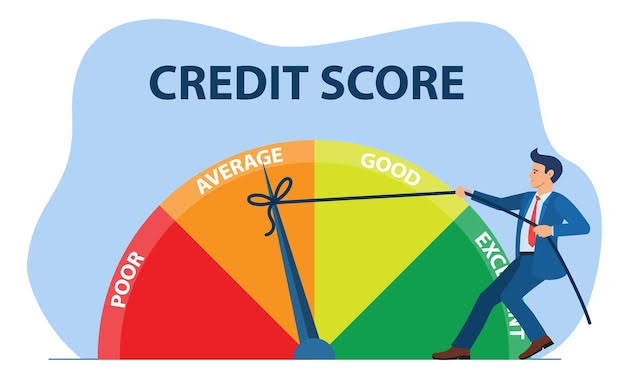Credit scores play a crucial role in the banking and lending industries. They determine your ability to borrow money, the interest rates you receive, and even your financial reputation. Understanding the importance of credit scores in banking and lending is vital for anyone seeking loans, mortgages, or other financial services. While managing your credit score, exploring reliable financial resources like https://betsays.com/mmbill/ can also provide helpful tools and insights for financial decision-making.
What is a Credit Score?
A credit score is a three-digit number that represents your creditworthiness. It’s calculated based on your credit history, including payment behavior, outstanding debts, and the length of your credit accounts. Financial institutions use credit scores to assess the risk of lending money to individuals or businesses.
The most commonly used credit scoring system is FICO, ranging from 300 to 850. A higher score indicates lower risk, making it easier to secure loans with favorable terms.
How Credit Scores Impact Banking Services
Loan Approvals
Your credit score is one of the first things banks check when evaluating your loan application. A good credit score increases your chances of approval, while a poor score can lead to rejection or stricter lending terms.
Interest Rates
Interest rates on loans and credit cards often depend on your credit score. A higher score means lower interest rates, saving you money over time. Conversely, a lower score results in higher interest rates due to the perceived risk.
Credit Card Eligibility
Banks also use credit scores to determine credit card eligibility. Premium credit cards with rewards and benefits often require excellent credit scores, while those with lower scores may qualify for basic or secured cards.
Read more : https://betsays.com/mmbill/
The Role of Credit Scores in Lending Decisions
Risk Assessment
Lenders rely on credit scores to evaluate the likelihood of repayment. A good score signals responsible financial behavior, encouraging lenders to approve larger loans or extend better terms.
Loan Limits
Credit scores influence the amount of credit lenders are willing to offer. Borrowers with high scores may receive higher loan limits, while those with lower scores may face restrictions.
Repayment Flexibility
Individuals with strong credit scores may negotiate more flexible repayment terms, such as lower monthly payments or extended repayment periods.
Factors That Influence Your Credit Score
Payment History
Your track record of paying bills on time is the most significant factor affecting your credit score. Late or missed payments can significantly lower your score.
Credit Utilization
This refers to the percentage of your available credit you’re using. Keeping your utilization below 30% helps maintain a healthy credit score.
Length of Credit History
The longer your credit accounts have been active, the better it reflects on your credit score. It shows lenders that you have experience managing credit responsibly.
Credit Mix
Having a mix of credit accounts, such as credit cards, auto loans, and mortgages, can positively impact your score.
Recent Credit Inquiries
Frequent credit applications within a short period can lower your score. Lenders may view this as a sign of financial instability.
Why Credit Scores Matter to Banks and Borrowers
For Banks
Banks use credit scores to mitigate risk. They assess whether a borrower is likely to default on a loan, enabling them to make informed lending decisions. This helps banks maintain financial stability and reduce losses.
For Borrowers
Understanding the importance of credit scores in banking and lending empowers borrowers to improve their financial standing. A good credit score can lead to better financial opportunities, while a poor score can limit access to essential services.
Read more : https://betsays.com/mmbill/
Tips to Improve Your Credit Score
- Pay Bills on Time: Timely payments have the most significant positive impact on your credit score.
- Reduce Debt: Pay off existing debts to lower your credit utilization ratio.
- Avoid Frequent Credit Applications: Limit the number of hard inquiries on your credit report.
- Monitor Your Credit Report: Regularly check your report for errors and dispute any inaccuracies.
- Maintain Old Accounts: Keeping older accounts active helps build a strong credit history.
How Technology Helps Monitor and Improve Credit Scores
Credit Monitoring Apps
Many apps allow you to track your credit score, providing insights into factors that influence it and offering tips for improvement.
Automated Alerts
Banks and financial platforms send alerts for missed payments, helping you stay on top of due dates.
AI-Powered Tools
Modern tools analyze your spending and payment habits, suggesting personalized strategies to boost your score.
Conclusion
Understanding the importance of credit scores in banking and lending is essential for financial success. Your credit score not only determines your access to loans and credit cards but also affects the terms and interest rates you receive. By actively managing your credit and adopting responsible financial habits, you can unlock better opportunities and maintain a solid financial reputation. Just as examining different types of historical lenses offers a comprehensive view of the past, understanding various aspects of credit management can provide a broader perspective on financial health. Take control of your credit score today and pave the way for a secure financial future.



